Autism Moves to the Forefront of the 2024 Election

A Pivotal Year for Autism Advocacy and Electoral Inclusion
As the 2024 U.S. presidential election approaches, autism and disability rights have emerged as key issues influencing political discourse, policy debates, and voter engagement efforts. Advocacy organizations, legislative initiatives, and community voices are shaping the narrative around neurodiversity and voter accessibility, signaling a shift towards greater societal inclusion. This article explores how autism is moving to the forefront of the election, examining the connections between voting rights, policy proposals, media representation, and political platform developments.
Autism and Voting Rights: Bridging Participation Gaps
What accommodations are available for voters with autism and other disabilities during elections?
Voters with autism and other disabilities are entitled to a range of accommodations to ensure they can participate in elections independently and privately. Federal laws such as the Americans with Disabilities Act (ADA) and the Help America Vote Act (HAVA) set mandates for accessible polling places and voting procedures.
These accommodations include wheelchair-accessible voting booths, accessible entrances, and voting equipment designed for individuals with visual impairments. Poll workers are trained to assist voters with disabilities, or voters may choose to bring a helper of their choice. Accessible voting devices, like ballot marking machines that offer audio ballots or large print options, further aid in accessibility.
Additional options include curbside voting for those with mobility challenges, transportation services to polling stations, and the availability of mail-in ballots with accessible formats. It is recommended that voters contact their local election offices beforehand to request specific accommodations or materials tailored to their needs, ensuring a smooth voting experience.
How are voting rights for individuals with autism addressed in the 2024 election?
Legal protections for voting rights extend to individuals with autism through landmark legislations such as the Voting Rights Act of 1965 and the Americans with Disabilities Act (ADA). These laws are designed to guarantee that people with autism can access polling places, use accessible voting equipment, and have their votes counted equally.
The Help America Vote Act (HAVA) of 2002 further mandates that all voting systems used in federal elections are accessible, promoting independent and private voting for individuals with disabilities. Despite these protections, actual participation remains below potential; in 2020, only around 17.7 million of the approximately 35 million eligible voters with disabilities cast ballots, citing barriers like lack of adequate information or accommodations.
Organizations such as Autism Speaks and Vote the Spectrum have taken active roles in promoting voter registration and education among the autistic community. They work to disseminate information on voting rights and available accommodations, aiming to bridge the participation gap.
As the 2024 election approaches, ongoing efforts focus on removing barriers, increasing awareness, and supporting the political engagement of individuals with autism. Ensuring accessible voting practices and legal protections remain central to strengthening democratic participation for all citizens, including the neurodiverse community.
| Aspect | Description | Additional Details |
|---|---|---|
| Legal Framework | ADA, HAVA, Voting Rights Act | Guarantee access, accommodations, and protections |
| Accessibility Features | Wheelchair-accessible booths, audio ballots | Designed to facilitate independent voting |
| Support Services | Trained poll workers, helpers | Assist with voting process and accommodations |
| Alternative Voting | Mail-in ballots, curbside voting | Options for those with mobility or communication challenges |
| Community Efforts | Autism Speaks, Vote the Spectrum | Focus on registration, education, advocacy |
| Participation Stats | 17.7 million voters with disabilities in 2020 | Need for increased awareness and resources |
The work of advocacy organizations, supported by legislation and ongoing community efforts, is vital in ensuring equitable voting rights. Improving access and reducing barriers will remain a priority as the nation prepares for the 2024 election, aiming to make democracy more inclusive for individuals with autism and disabilities.
Growing Political Engagement of the Neurodivergent Community
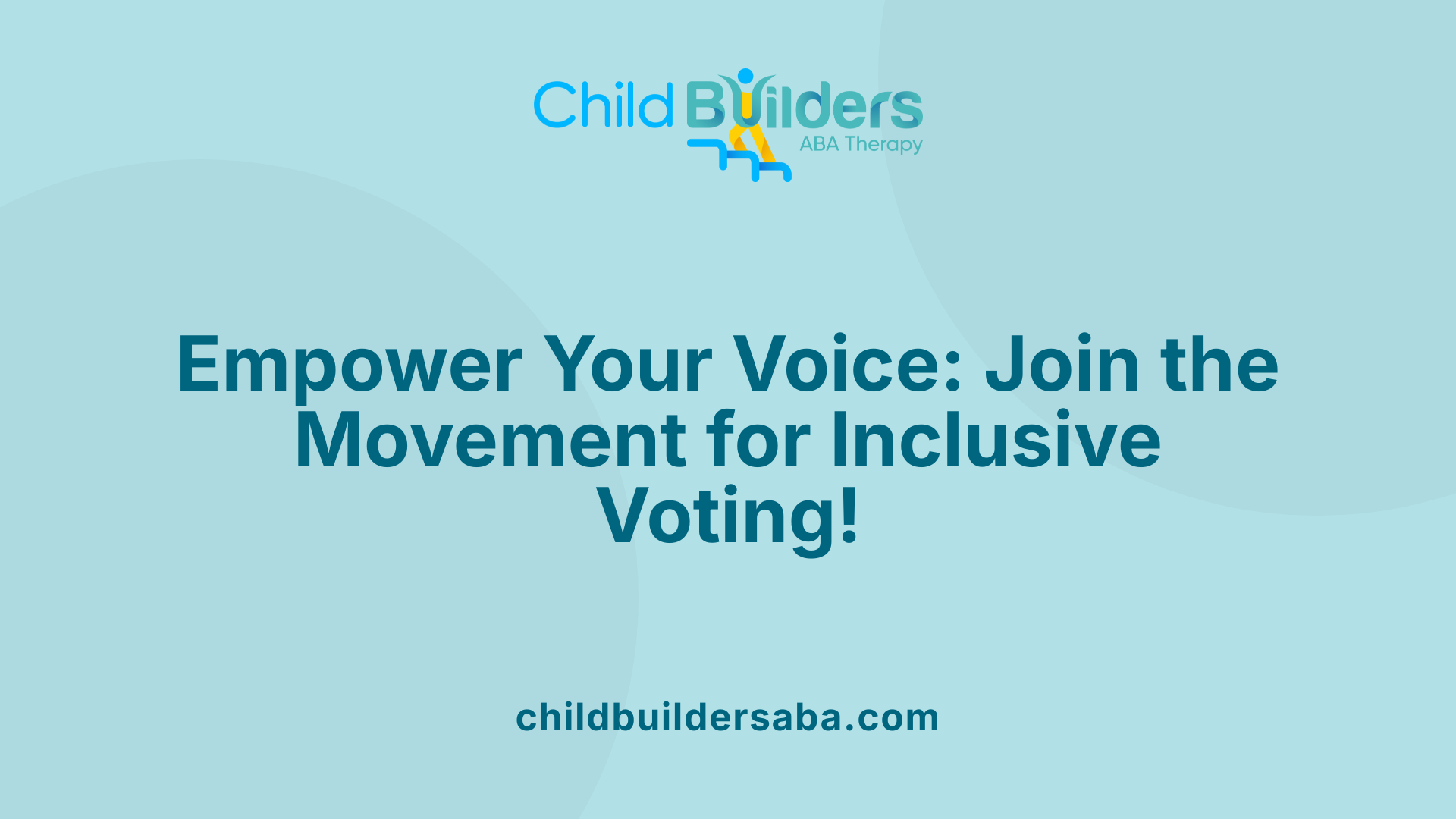
Participation of autistic voters in elections
The involvement of autistic individuals and the broader neurodivergent community in elections is gaining recognition. While approximately 35 million adults with disabilities are eligible to vote in the U.S., only 17.7 million cast ballots in the 2020 presidential election. Barriers such as lack of accommodations, insufficient information about voting rights, and logistical challenges contribute to this low participation.
Autistic voters face specific hurdles, but initiatives like 'Vote the Spectrum' launched by First Place AZ aim to change this. This nonpartisan movement, started in 2021, offers accessible workshops and mock elections to empower individuals with autism spectrum disorder and other disabilities. These efforts not only prepare voters but also help dismantle systemic barriers to voting, fostering a more inclusive democratic process.
Community-driven voter registration and education
Advocacy organizations like Autism Speaks play a pivotal role in raising awareness and facilitating voter participation among the neurodiverse population. They provide vital information on how to register, understand voting rights, and navigate legal protections. These organizations also address common myths and misconceptions about voting for individuals with autism.
'Vote the Spectrum' exemplifies community-driven initiatives that focus on accessible education and registration efforts. Through workshops, outreach programs, and community events, these organizations work to ensure that neurodivergent voters are informed, prepared, and confident in their electoral participation. The emphasis is on making the voting process accessible and understandable, considering communication and sensory needs.
Impact of advocacy efforts on policy
The efforts of advocacy groups are not only increasing voter turnout but also shaping policy agendas. Their campaigns highlight the need for legislative reforms to improve voting accessibility, such as the implementation of accommodations and protections under the Americans with Disabilities Act (ADA). They advocate for laws like the John Lewis Voting Rights Advancement Act, which aims to enhance voting rights protection for all citizens, including those with disabilities.
Advocacy has also influenced broader policy changes, including federal funding and legislation targeting healthcare, early intervention, employment, and inclusion of neurodiverse individuals. These efforts aim to create a more equitable society where voting rights and community participation are protected and promoted.
How is autism portrayed in public discourse and media coverage during the 2024 election?
During the 2024 election cycle, autism has been increasingly prominent in public discourse, largely shaped by advocacy organizations and media attention. Coverage highlights legislative achievements such as the passage of the Autism CARES Act of 2024, which provides significant funding for research and services, and ongoing efforts to expand protections for autistic individuals.
Media narratives frequently focus on policy debates around healthcare access, early diagnosis, lifelong support services, and employment opportunities. These discussions underscore the community’s challenges and aspirations, emphasizing the importance of societal inclusion and equal rights.
Public debates also scrutinize voting accessibility, with media emphasizing initiatives like 'Vote the Spectrum' that empower autistic voters. Overall, autism is portrayed as a vital issue that intersects with broader themes of civil rights, healthcare, and social justice, driven by activism and legislative progress.
What role do advocacy organizations play in raising awareness and fostering participation?
Organizations such as Autism Speaks and First Place AZ are instrumental as they lead efforts to inform and mobilize the neurodiverse community. They organize accessible voter registration drives, workshops, and mock elections designed specifically for individuals with autism and other disabilities.
These efforts aim to educate about voting rights, available accommodations, and the voting process. The 'Vote the Spectrum' program exemplifies how community-based, nonpartisan activities can dismantle barriers to electoral participation.
Furthermore, advocacy groups push for policy reforms, training programs, and legal protections, creating a supportive environment for civic engagement. Their campaigns also shape public opinion and influence policymakers to prioritize neurodiversity and disability issues in electoral platforms.
What are the main political positions and debates surrounding autism in the 2024 election?
Autism has become a central focus in current political debates, with candidates proposing a range of policies to support individuals on the spectrum. Democratic platforms tend to emphasize increased funding for early intervention, healthcare services, inclusive education, and research.
Republican viewpoints often highlight employment and personal responsibility, advocating for private sector solutions and reduced government intervention. Legislative efforts like the Autism CARES Act aim to expand research, training, and healthcare access, reflecting a rising awareness of autism’s societal impact.
However, some proposals, such as the Heritage Foundation's Project 2025 blueprint, pose potential threats to existing protections and support systems, sparking debates about the best approaches to inclusion and support.
How might the election influence future policies through legislative and community action?
The 2024 election’s outcome will significantly influence future policies affecting autism and neurodiversity. Success in reauthorizing and expanding programs like Autism CARES can lead to increased federal funding, better access to early intervention, and employment initiatives.
Conversely, adverse legislative efforts could threaten existing protections. Community advocacy, protests, and engagement with candidates are crucial in shaping the legislative landscape. Voters with autism and their allies aim to push policies toward greater inclusion, disability rights, and accessible services.
The political climate following the election will determine whether efforts for societal inclusion and support are reinforced or undermined. Active participation from neurodivergent communities is essential in guiding this process.
Legal and Policy Frameworks Supporting Autism Rights
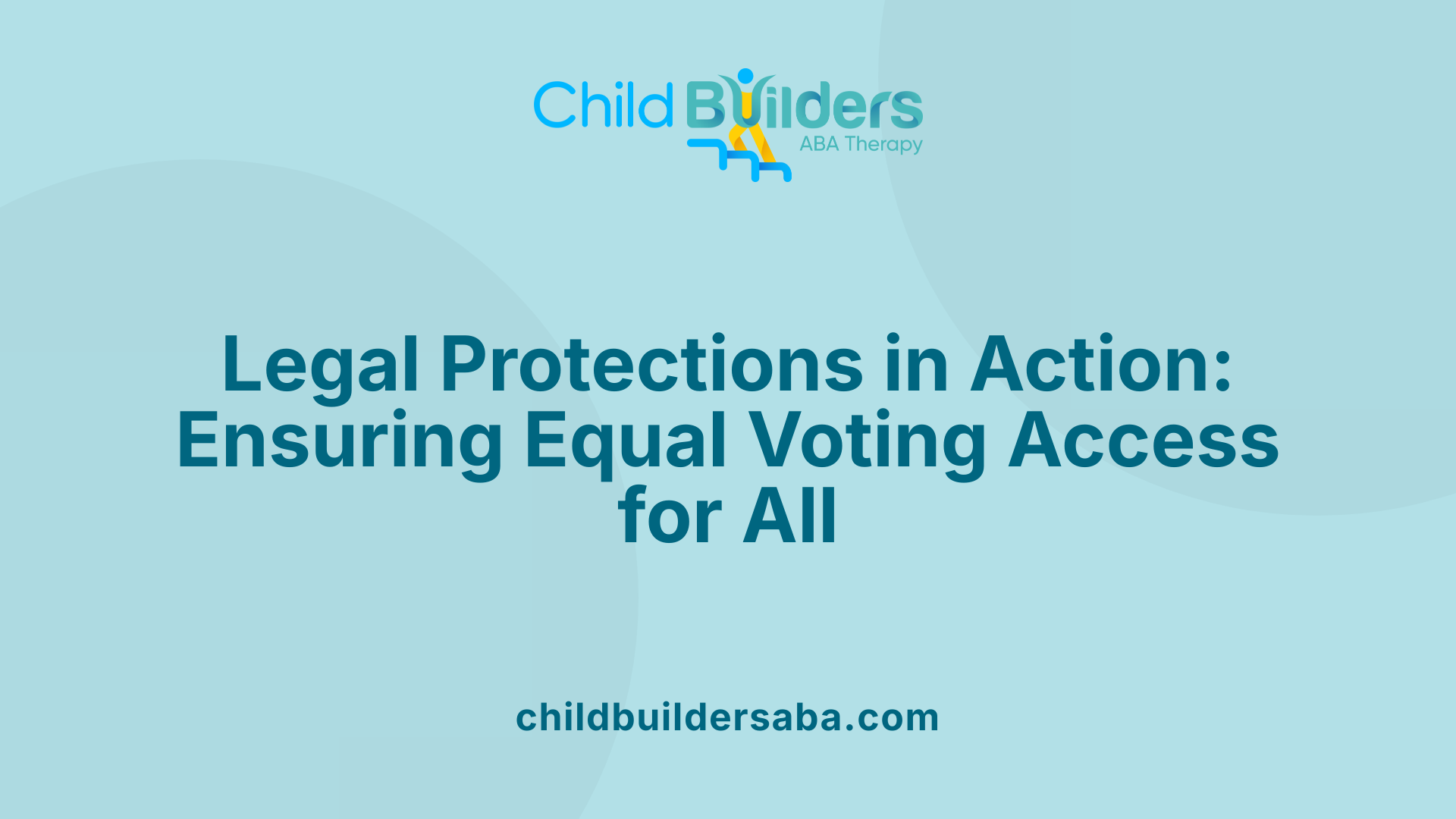
What accommodations are available for voters with autism and other disabilities during elections?
Voters with autism and other disabilities have access to a range of accommodations designed to ensure their ability to vote privately and independently. Federal laws such as the Americans with Disabilities Act (ADA) and the Help America Vote Act (HAVA) establish mandatory accessible polling places. These facilities include wheelchair-accessible voting booths, accessible entrances, and voting equipment equipped with features for visual impairments, such as audio ballots or large print options.
Assistance from trained poll workers is also available, allowing voters to receive help if needed. They can bring a helper or use accessible voting devices, which often include ballot marking machines with audio output, tactile features, or other assistive technologies. Alternative options such as curbside voting, transportation services, and mail-in ballots with accessible formats further support voter participation. Voters are encouraged to communicate with election officials ahead of time to specify their accommodations or request materials tailored to their needs.
How is the legal landscape evolving to support autistic voters and individuals with disabilities?
Legal protections and frameworks are continuously evolving to better support autistic voters and individuals with disabilities. Central among these are the ADA, the Voting Rights Act, and HAVA, which set the foundation for accessible voting procedures and nondiscrimination policies.
Recent developments include community-based programs and initiatives like Massachusetts’ Blue Envelope project, which provides tailored instructions to police officers to facilitate safer interactions during traffic stops involving individuals with autism. Legislative efforts aim at modernizing administrative rules to enhance oversight, transparency, and inclusivity.
Furthermore, campaigns to reform outdated language related to disabilities, along with policies promoting early detection, intervention, and research, reinforce a growing legal commitment to safeguarding the rights of neurodivergent individuals. These evolving legal approaches reflect a broader recognition of the importance of participation and equal access within the democratic process.
What new or emerging policies are being considered to further enhance voting accessibility and disability rights?
Several new and emerging policies aim to further advance voting accessibility and protect disability rights. State initiatives, such as the Massachusetts Blue Envelope program, exemplify strategies to improve law enforcement interactions with individuals with autism, with efforts underway to codify these programs into law for long-term impact.
Legislation like Senate SB 112 focuses on expanding early detection, specialized education, and research on autism, which can indirectly influence voting accessibility by fostering a more inclusive society. Policies aimed at improving dissemination of voter information are also prioritized to ensure individuals with disabilities are knowledgeable about their rights and available accommodations before elections.
Advocates are actively pushing for the modernization of voting technology, including accessible voting machines with advanced assistive features, and reforms to streamline administrative processes for voters with disabilities. Data collection initiatives are also gaining traction to create evidence-based policies that boost participation.
In sum, the push for innovative policies and reforms reflects an ongoing commitment to integrate disability rights into the fabric of electoral justice, ensuring that neurodivergent and disabled communities are fully represented and supported in the democratic process.
Autism and Broader Societal Inclusion in 2024 Politics
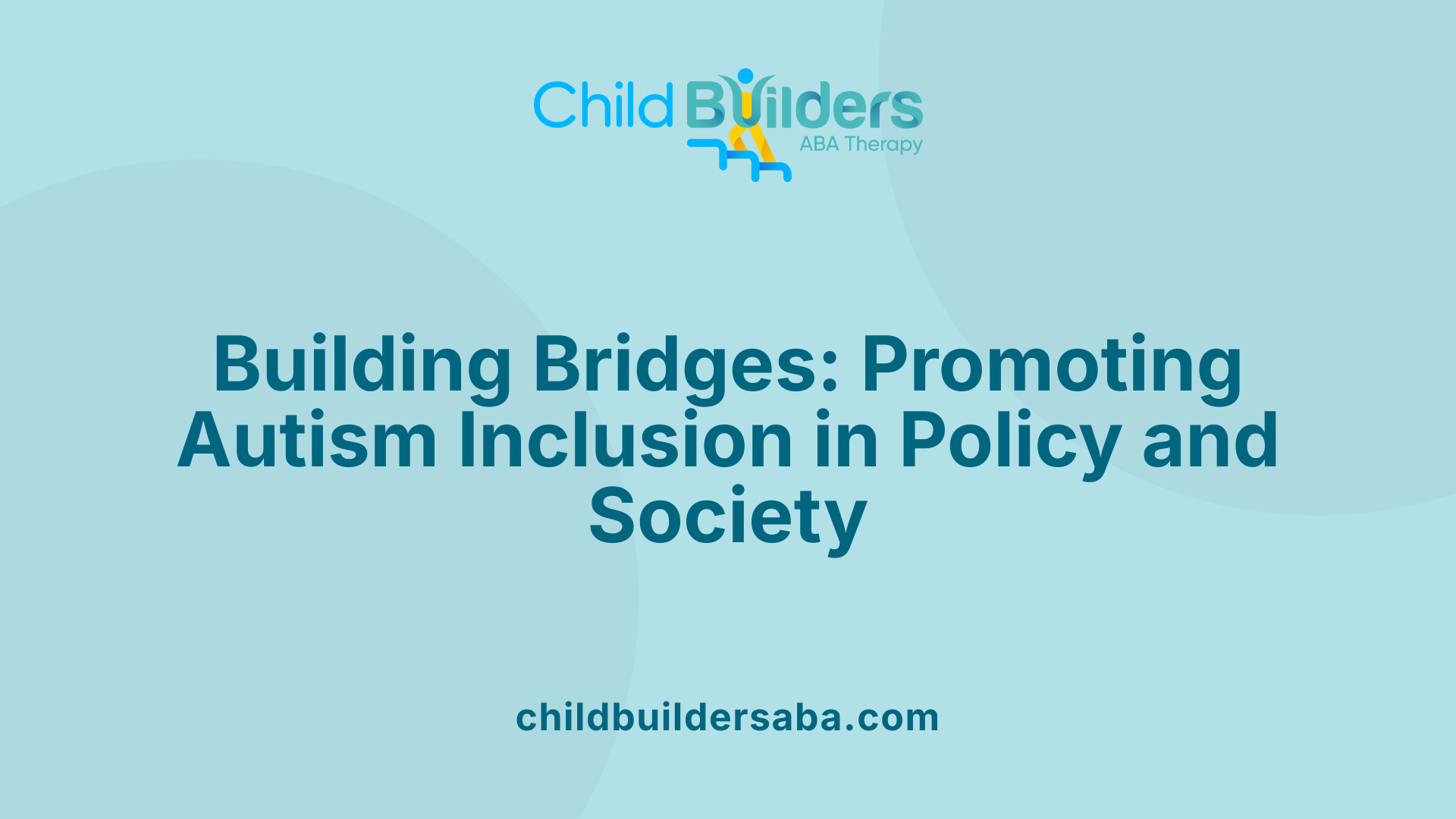
How are election results shaping the future of autism-related policies and societal inclusion?
The 2024 elections hold substantial influence over the direction of policies concerning autism and societal inclusion. Outcomes can either bolster or hinder ongoing initiatives aimed at supporting individuals with autism.
Supporters of current programs see positive signs in legislative actions like the reauthorization of the Autism CARES Act, which funds autism research and early intervention strategies. Additionally, state-level legislation, such as Massachusetts’ Blue Envelope program that enhances law enforcement interactions with individuals with autism, reflects a commitment to inclusion.
However, electoral shifts towards conservative priorities, encapsulated in initiatives like the Project 2025 blueprint, threaten to cut back funding and protections established over recent years. The influence of advocacy organizations like Autism Speaks and community activism remains vital in ensuring that policies prioritize health, education, and employment supports.
The political climate significantly impacts societal attitudes, dictating how autism is perceived and supported within communities. Election results determine legislative focus, funding allocations, and the robustness of protections for the neurodiverse community.
In essence, the outcomes of the 2024 elections will shape the accessibility and quality of services available to autistic individuals, influencing societal acceptance and fostering environments of inclusion or, conversely, marginalization.
States and Local Initiatives Supporting Autism and Disability Rights
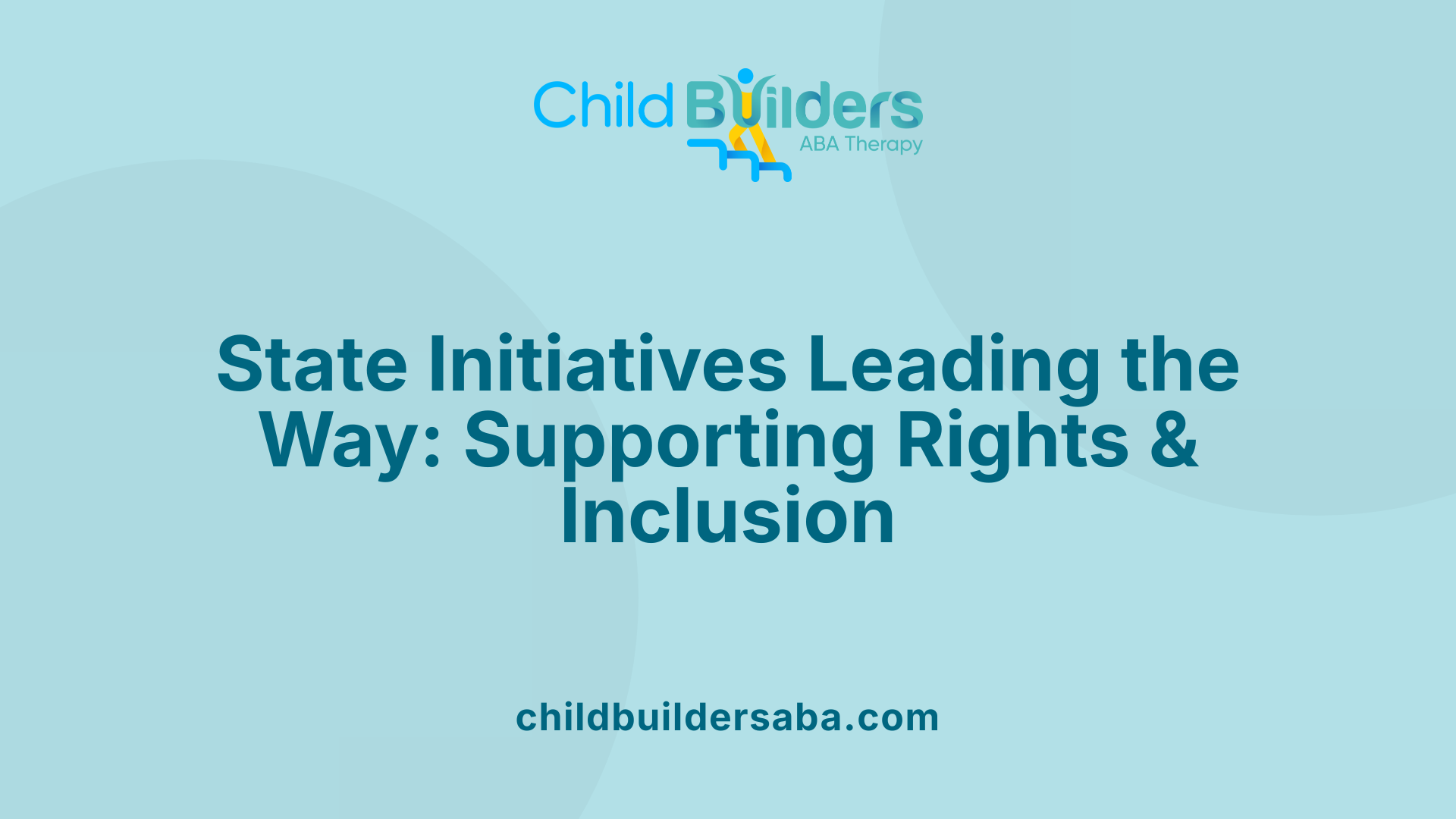
What are some state-level initiatives supporting autism and disability rights in 2024?
Across the United States, various state-level programs and legislative efforts are actively working to enhance the lives and rights of individuals with autism and other disabilities. In Massachusetts, a prominent example is the Blue Envelope program, launched in 2024. This initiative distributes envelopes containing specific instructions for police officers during traffic stops involving individuals with autism spectrum disorder (ASD).
Since its inception, the program has distributed over 8,500 Blue Envelopes across the state, significantly improving safety and communication during law enforcement encounters. Recognizing its success, legislative leaders have proposed bills—such as the one seeking to make the Blue Envelope program permanent—to ensure ongoing support. This effort exemplifies a community-centered approach to enhancing interactions and fostering trust.
Meanwhile, Florida has implemented comprehensive autism-related legislation aimed at early detection, intervention, and ongoing research. Senate Bill SB 112, for example, emphasizes early detection and intervention services for children with autism until age four, expanding support through public education and research coordination.
In addition, Florida’s Senate bills support services for veterans, foster care programs, and disaster management, illustrating a broad legislative commitment to improving accessibility and inclusion across multiple facets of life. The state also aims to modernize administrative processes, improve oversight, and enhance safety protocols, including efforts to replace outdated language and improve law enforcement interactions.
Other states are also making strides. For example, New Hampshire and Iowa are witnessing early campaign activities from candidates prioritizing disability rights, while states like California are promoting early intervention and employment initiatives. These efforts underscore a nationwide trend toward integrating disability rights into core policy frameworks.
Historical and Legislative Milestones in Autism Rights and Accessibility
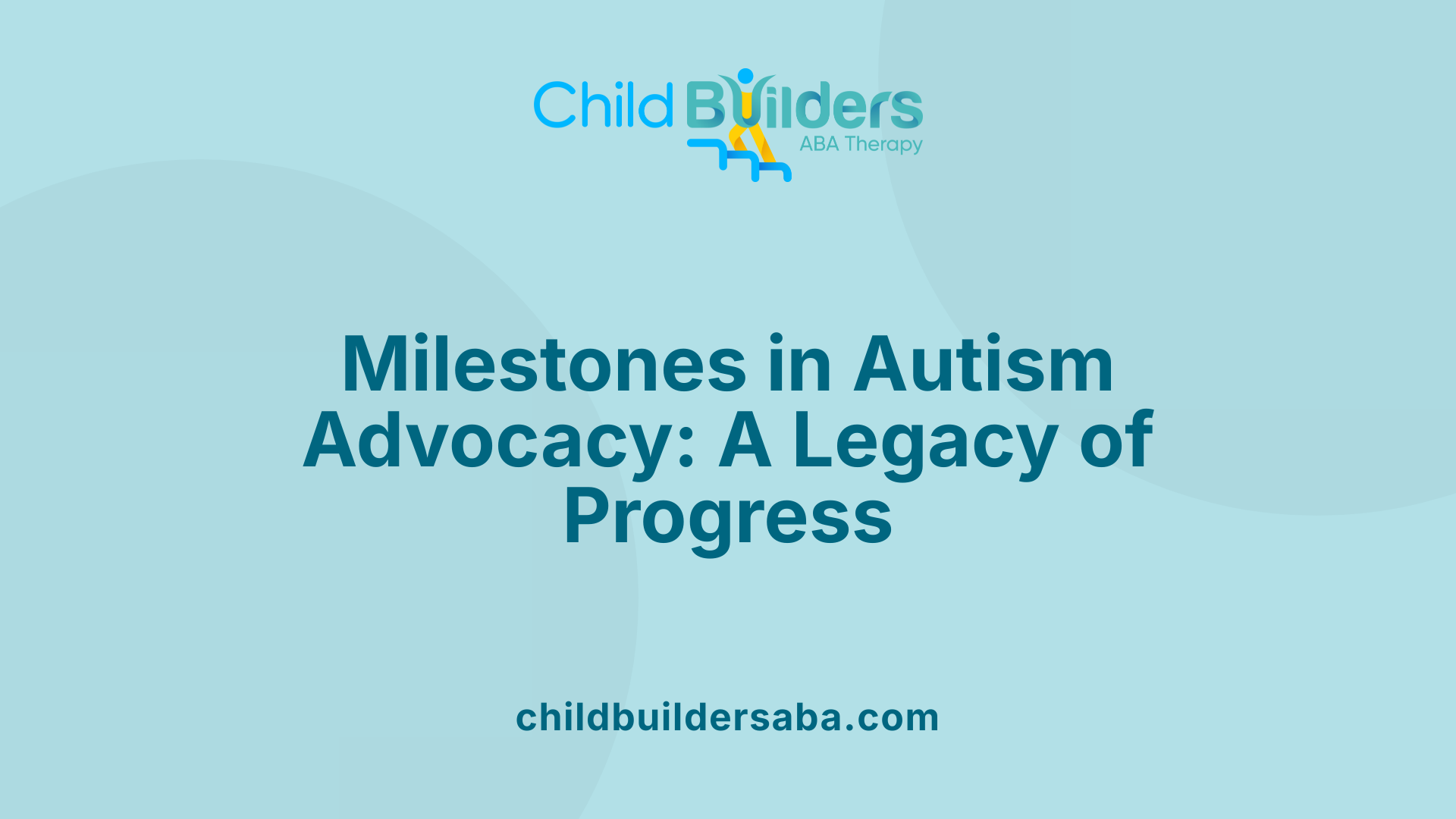
How have legal frameworks evolved to support autism rights over time?
Legal protections for individuals with autism have advanced considerably over the past few decades. A pivotal moment was the enactment of the Americans with Disabilities Act (ADA) in 1990, which set a precedent by prohibiting discrimination based on disability and mandating accessible facilities and services. The ADA's 25th anniversary in 2015 served as a time to reaffirm and strengthen these commitments, highlighting progress and addressing ongoing challenges.
Since then, specialized legislation focusing on autism has played a crucial role. The Autism CARES Act, first passed in 2014 and renewed in 2024, has expanded efforts in research, early intervention, and educational support for individuals across the spectrum. More recently, states like Massachusetts have introduced programs such as the Blue Envelope initiative, which legally formalizes procedures for law enforcement to support individuals with autism during interactions, ensuring safety and understanding.
Modern laws emphasize comprehensive support—covering early diagnosis, education, employment rights, and community integration—which foster societal inclusion. These milestones reflect a trajectory from basic anti-discrimination laws toward targeted, autism-specific policies that address unique needs and promote full participation in society.
What role have advocacy and community organizations played in advancing these milestones?
Advocacy groups and community organizations have been instrumental in shaping autism rights advancements. Organizations like Autism Speaks and local advocates have mobilized public support, raised awareness, and pushed policymakers to adopt supportive legislation.
Their persistent efforts have led to significant legislative achievements, such as the ADA’s enforcement and the expansion of federal funding for autism research and support programs. Community-led initiatives have also initiated practical solutions like Massachusetts’ Blue Envelope program—an example of translating advocacy into concrete action.
Furthermore, advocacy organizations continue to promote societal acceptance, push for policy reforms, and develop community programs that improve quality of life for neurodivergent individuals. Their sustained influence ensures that progress is continuous and that policies evolve to meet emerging needs.
What are key future directions for autism legislation and societal change?
Looking forward, autism-related legislation aims to deepen protections and broaden access to services. Future policies will likely focus on reducing barriers in employment, education, and healthcare, fostering an environment where neurodiversity is fully embraced.
Innovative areas include integrating neurodiversity into mainstream policies, increasing federal and state funding for research, and leveraging technology to support independence. There is also a strong emphasis on educator and law enforcement training—evidenced by programs like Massachusetts’ Blue Envelope—to promote safety and understanding.
Moreover, advocacy efforts are increasingly centered on intersectionality, equity, and rights across the lifespan. Society is moving toward norms that recognize neurodiversity as a natural variation, emphasizing inclusion and full participation.
Upcoming legislative efforts will hopefully promote policies that reflect these goals, ensuring that individuals with autism can access opportunities and protections at all levels of society.
| Major Milestones and Initiatives | Year | Purpose | Impact |
|---|---|---|---|
| Americans with Disabilities Act (ADA) | 1990 | Civil rights for disability | Prohibited discrimination, mandated accessibility |
| 25th Anniversary of ADA | 2015 | Reinforce commitments | Renewed focus on civil rights |
| Autism CARES Act (renewed in 2024) | 2014, 2024 | Expand autism research and services | Increased funding and program scope |
| Massachusetts Blue Envelope Program | 2024 | Support law enforcement interactions | Safer interactions for individuals with ASD |
| State Legislation (e.g., SB 112, SB 168, SB 7012) | 2024 | Early detection, mental health diversion, support services | Improved early intervention and support |
The ongoing evolution of the legal landscape underscores a societal commitment to recognizing, supporting, and including people with autism. Continued progress relies on advocacy, informed policymaking, and public awareness—values that have been central to achievements so far and will guide future efforts.
A Turning Point for Rights and Inclusion
As the 2024 election unfolds, it becomes clear that autism and neurodiversity are central to conversations about civil rights, healthcare, education, and civic participation. Legislative developments like the Autism CARES Act, innovative state programs such as Massachusetts’ Blue Envelope, and advocacy campaigns are shaping a future where neurodiverged individuals can exercise their rights fully and participate meaningfully in society. The election’s outcome will influence the direction of policy, funding, and societal attitudes, emphasizing the importance of continued activism and awareness. Together, these efforts underscore a broader societal commitment to inclusion and the recognition of neurodiversity as a strength rather than a challenge, marking a pivotal moment in the journey toward equality and acceptance.
References
- Vote the Spectrum aims to broaden the spectrum of democracy
- Disability Rights and Representation: Navigating the 2024 Election
- Democrats line up for 2028 presidential race: takeaways from an AP ...
- Election 2024: Latest News, Results and Analysis
- Program to support drivers with autism would become permanent ...
- [PDF] President Albritton's Statement on the 60th Day of the 2025 ...
- Election 2024: Harris concedes to Trump; Dow sets new record high
- Autism Moves to the Forefront of the 2024 Election ...
- The Autism CARES Act of 2024 advances through Congress with ...



























.jpg)









































































